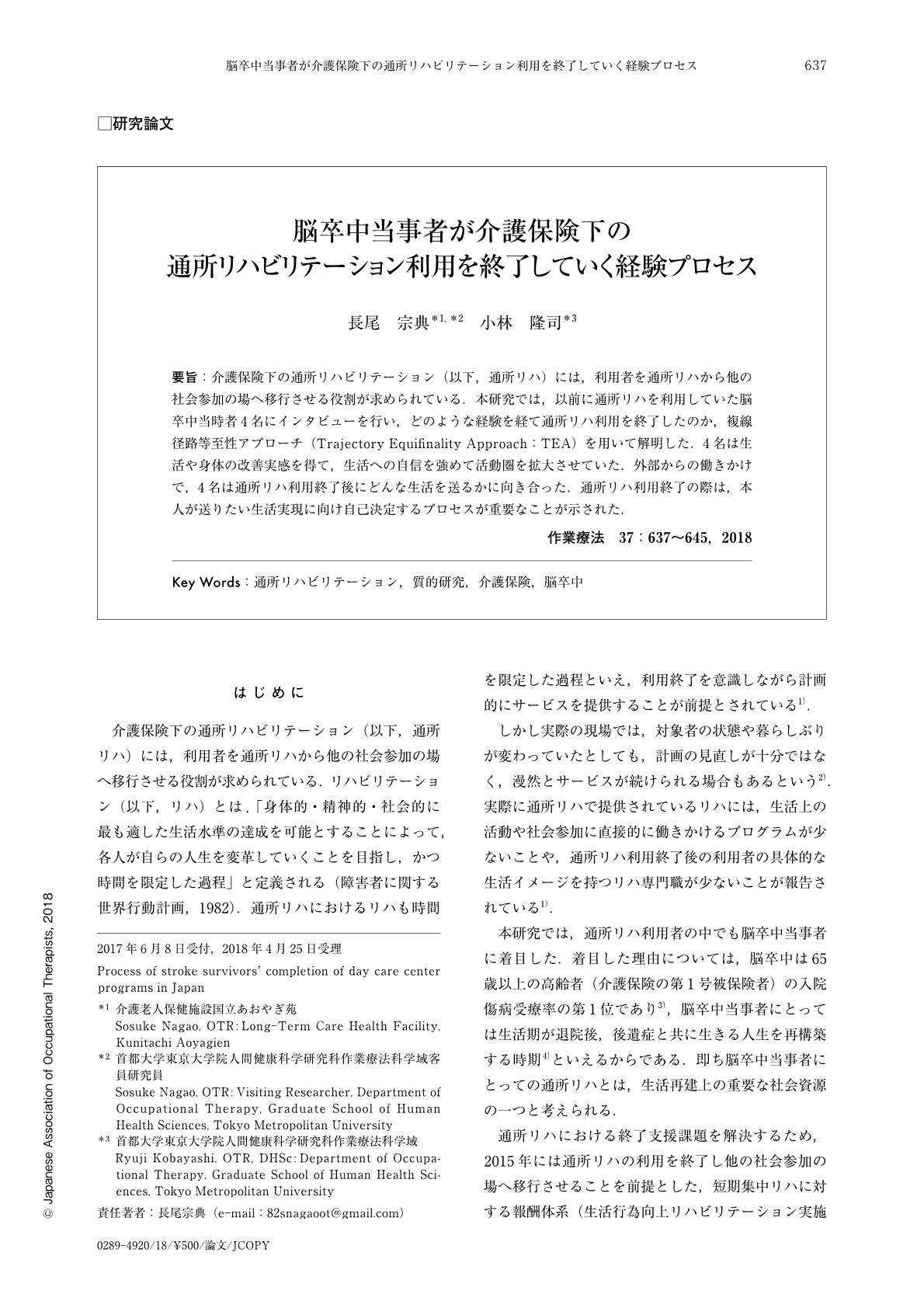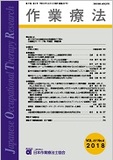Japanese
English
- 販売していません
- Abstract 文献概要
- 1ページ目 Look Inside
- 参考文献 Reference
- サイト内被引用 Cited by
要旨:介護保険下の通所リハビリテーション(以下,通所リハ)には,利用者を通所リハから他の社会参加の場へ移行させる役割が求められている.本研究では,以前に通所リハを利用していた脳卒中当時者4名にインタビューを行い,どのような経験を経て通所リハ利用を終了したのか,複線径路等至性アプローチ(Trajectory Equifinality Approach:TEA)を用いて解明した.4名は生活や身体の改善実感を得て,生活への自信を強めて活動圏を拡大させていた.外部からの働きかけで,4名は通所リハ利用終了後にどんな生活を送るかに向き合った.通所リハ利用終了の際は,本人が送りたい生活実現に向け自己決定するプロセスが重要なことが示された.
Day care centers that operate under long-term care insurance in Japan are expected to have more clients transfer from day care centers to other social activity venues. The purpose of this study was to elucidate the process of clients' completion of the day care center program (and subsequent transfer thereof). Four stroke survivors who had used day care centers were interviewed on their experiences there. Trajectory Equifinality Approach (TEA) was used to analyze the results in which the clients reported recovering their physical functions and qualitative improvement of activities of daily living due to the day care programs. Thereafter, they gained confidence to carry out daily activities and expanded the scopes of their activities and participation. The day care members (staff or other users) gave them direct or indirect opportunities to reconsider how they wanted to manage their lives without the day care. The clients also believed that the rehabilitation process would continue to be a part of their lives. Therefore, they voluntarily considered utilizing other social supports for their rehabilitation after completing the day care program. These findings suggest that day care centers promote community-dwelling stroke survivors' autonomous attitudes for rehabilitation and self-management.

Copyright © 2018, Japanese Association of Occupational Therapists. All rights reserved.


